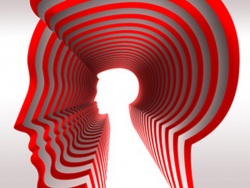Difference between revisions of "Trilaksana"
(Created page with "thumb|250px| <poem> All {{Wiki|manifestations}} of {{Wiki|phenomenal}} reality are: 1. Impermanent (anitya)--i.e., produced by causes,...") |
|||
| (2 intermediate revisions by the same user not shown) | |||
| Line 3: | Line 3: | ||
All {{Wiki|manifestations}} of {{Wiki|phenomenal}} [[reality]] are: | All {{Wiki|manifestations}} of {{Wiki|phenomenal}} [[reality]] are: | ||
| − | + | 1. [[Impermanent]] ([[anitya]])--i.e., produced by [[causes]], not [[self]]-subsistent, and [[subject]] to eventual [[decay]]. This does not deny their provisional [[reality]] WHILE they are in [[existence]], what it does deny is that anything is impervious to change. | |
| − | 2. [[Frustrating]] ([[duhkha]])--Because [[human]] {{Wiki|beings}} strive to attain permanent [[happiness]] in an {{Wiki|impermanent}} [[world]], this inevitably creates {{Wiki|frustration}}, {{Wiki|dissatisfaction}}, {{Wiki|stress}}, and difficulty. | + | 2. [[Frustrating]] ([[duhkha]])--Because [[human]] {{Wiki|beings}} strive to attain [[permanent]] [[happiness]] in an {{Wiki|impermanent}} [[world]], this inevitably creates {{Wiki|frustration}}, {{Wiki|dissatisfaction}}, {{Wiki|stress}}, and difficulty. |
| − | 3. Without [[Self]] ([[anatman]])--The [[human]] | + | 3. Without [[Self]] ([[anatman]])--The [[human]] {{Wiki|being}} is just as {{Wiki|impermanent}} as all other {{Wiki|temporal}} [[phenomena]]. [[Buddhists]] do not deny the [[existence]] of a provisional [[personality]], what they deny is the [[existence]] of an {{Wiki|eternal}}, [[unchanging]] [[self]]. Instead, the [[human]] [[personality]] is seen as the [[aggregate]] of the [[Five skandhas]] . |
</poem> | </poem> | ||
{{R}} | {{R}} | ||
[http://personal.carthage.edu/jlochtefeld/buddhism/Doctrinalformulae.html personal.carthage.edu] | [http://personal.carthage.edu/jlochtefeld/buddhism/Doctrinalformulae.html personal.carthage.edu] | ||
[[Category:Skandha's]] | [[Category:Skandha's]] | ||
Latest revision as of 10:59, 14 October 2014
All manifestations of phenomenal reality are:
1. Impermanent (anitya)--i.e., produced by causes, not self-subsistent, and subject to eventual decay. This does not deny their provisional reality WHILE they are in existence, what it does deny is that anything is impervious to change.
2. Frustrating (duhkha)--Because human beings strive to attain permanent happiness in an impermanent world, this inevitably creates frustration, dissatisfaction, stress, and difficulty.
3. Without Self (anatman)--The human being is just as impermanent as all other temporal phenomena. Buddhists do not deny the existence of a provisional personality, what they deny is the existence of an eternal, unchanging self. Instead, the human personality is seen as the aggregate of the Five skandhas .
